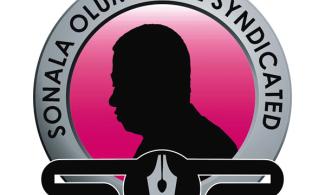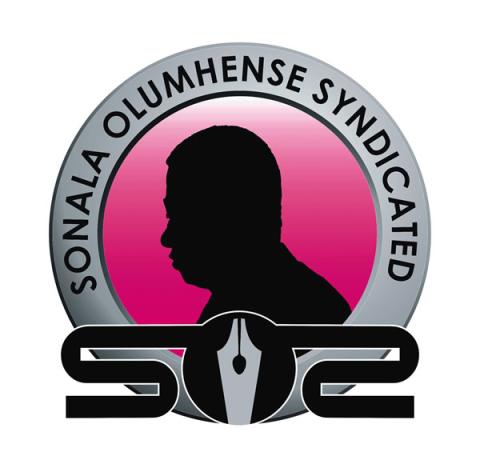
As everyone now knows, Dr. Reuben Abati, who was President Goodluck Jonathan’s spokesman for four years, was recently arrested by the anti-corruption agency, EFCC.
Unrefuted reports say he was confronted with an allegation he received N50m from his government’s National Security Adviser (NSA) Sambo Dasuki and his $2.1 billion military equipment fund that was diverted to other uses.
Hopefully, some of this is false, otherwise, it is professionally insulting. I mean, others were picking up money by the truckload but Abati only got one Ghana-Must-Go? At the lower levels, Olisah Metuh, who was not even a government man, is talking transactions in the hundreds of millions. Doyin Okupe, who was brought into the government merely to relieve Abati of a few duties, has confessed to picking up from Dasuki N50m on two occasions; yet Abati himself received only a miserly N50m?
But that is not why I am here. I write this because of what Abati is said to have done with the N50m. He reportedly told the EFCC that he gave the money to journalists in a media relations effort.
Parenthesis: Almost by definition, nobody who got money from Dasuki spent it on themselves. Each of them passed it on to others.
Anyhow, the former presidential adviser is said to have informed the investigators that, alas, he is unable to remember who the beneficiary journalists are.
I know there are Nigerians who do not believe Dr. Abati on this point. How can he say, they ask, that he cannot remember the people to whom he distributed just N50m in the last two years?
I would not say that. For one thing, I forget things too. And I imagine it is easier to be forgetful when trained investigators give you the hottest sit in the room, having wired it by themselves ahead of your arrival, and then start to ask crafty questions.
The truth is that it is not important what Abati remembers. What is important is what the journalists—and it is safe to presume these are media chieftains and perhaps State House correspondents—remember.
Each of the journalists who picked up something—a brown envelope, a stuffed GMG, or a case of vintage Akinloye champagne—remembers. And I hereby encourage them, because we know they all support President Muhammadu Buhari’s war against corruption, to return what they received.
The way I see it, if all the media people involved return what they were given, and Abati is invited back to add it all up, it will come to N50m. The media people would have done the best by their country and by the former presidential spokesman who, only because his memory failed him last week, did not embarrass them.
The Abati investigation raises the query: exactly how were the Dasuki funds being distributed? Was there a committee, or could anyone in the government just walk to him? Who authorized the payments or raised the vouchers, if any were required? Did Dasuki originate, authorize and disburse? Did you have to sign one of those big civil service registers as Dasuki walked to his cashier cage, counted out the money and handed over through his little cashier window?
President Jonathan has recently said that Dasuki did not steal any money. Of course not, especially as “stealing” is hardly the charge, but did GEJ know any of those cash outlays were being outlayed? If so, when did he know it, and did he simply laugh, knowing that no stealing was going on, and that even if it was, stealing was not corruption?
The point is that GEJ has not been asked any questions by the Buhari government about anything ethically unseemly. The answer seems to be in the recent revelation that the government is not interested in putting anyone in jail, and just wants all stolen funds returned.
A related revelation came last Sunday from Vice-President Yemi Osinbajo, who told some Nigerians in the United States that his government does not teleguide the security agencies and the EFCC, and would not interfere if they moved against Mr. Jonathan.
He meant, I think, that the rule of law prevails, and that the anti-corruption thing in Nigeria is not political.
I’ll take those three items back to front. Any serious anti-corruption initiative anywhere is, and should be, political. Whenever and wherever it is a conscious policy to identify and punish corruption, it is political, and should be. It is political will that provides strength and sustainability for an anti-corruption endeavor.
Legality: An anti-corruption initiative must be founded in law if it is to be respected by the people, and honored by Time. But legality does not simply mean due process; it also means obeying court orders.
In that regard, of the infractions of this standard that the Buhari government has committed in its first 18 months, the most notable is its refusal to obey the February 2016 order by the Federal High Court to publish up-to-date information on recovered funds since 1999. It stated that governments during the period have "breached the fundamental principles of transparency and accountability for failing to disclose details about the spending of recovered stolen public funds, including on a dedicated website."
That was nine months ago, but the government has carried on as if the order was never made.
Third, Vice-President Osinbajo did not specify the EFCC during his remarks in Houston; I do so to make the point that when the Buhari government speaks of combating corruption these days, it talks about the EFCC. As we know, hardly any other agency has any form of credibility or presence in the field. Consider that with barely a whisper from the executive recently, the Senate amended the Code of Conduct Bureau Act to transfer control from the Presidency to the National Assembly. Also recently, in response to the bungled arrest of judicial officers by the DSS, President Buhari ordered that the matter be transferred to the EFCC.
Yes, the EFCC happens to have credible leadership now. Acting Chairman Ibrahim Magu is a gift to the country, and to Buhari’s war, but he doesn’t even have a letter of appointment. That is: not only has his appointment not been confirmed by the Senate, there are reports of a conspiracy to kick him out of the job.
And yet, on his shoulders appear to rest the fate of the anti-corruption offensive in Nigeria, and in effect, of the government. Not only has the government sub-leased its essence, it has done so to a clearly overburdened agency.
Still, it is to the EFCC that the journalists who allegedly received the Abati campaign largesse must refund what they received. While the professional standard is simply that a journalist ought not to collect gifts from those they report, dear colleague, you had no way of knowing its illegitimate origins let alone that it was blood money.
But now you do, and may plead differently only at the risk of being exposed as an accomplice to the crime. Who knows what worse revelations may be on the way?
Arise, dear colleague, and set the right example.
[email protected]
Twitter: @SonalaOlumhense
